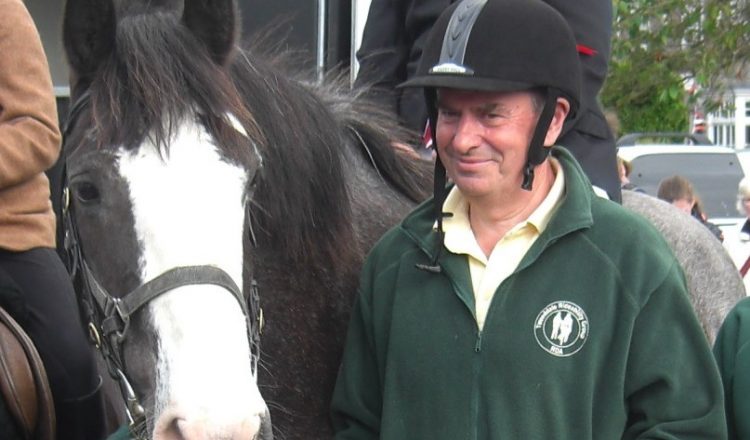 Volunteers’ Week (1-7 June), is always a time for celebrating those community heroes who give their time for the benefit of others – and this year they deserve our recognition more than ever. With so many charities struggling to fundraise and support their communities, we caught up with volunteers from Riding for the Disabled Association (RDA) about life under lockdown.
Volunteers’ Week (1-7 June), is always a time for celebrating those community heroes who give their time for the benefit of others – and this year they deserve our recognition more than ever. With so many charities struggling to fundraise and support their communities, we caught up with volunteers from Riding for the Disabled Association (RDA) about life under lockdown.
On 13 March, all RDA groups across the UK closed their doors, the first time the charity has ceased operations in its 50 year history. With around 480 groups usually supporting 25,000 adults and children with physical and learning disabilities, the impact of COVID-19 has been devastating.
Despite the closures, many of the charity’s 18,000 volunteers are still devoting time to the cause: fundraising (needed now more than ever), keeping in touch with participants and their families and, of course, helping to look after the horses.
Helping the horses
At Tweeddale RDA in Peebles, Scotland, there are six horses to take care of. The group is based at a farm and livery, and although all six are happily turned out, three volunteers take it in turns to check in on them each day. “The owners have a timetable of when everyone is allowed on site, so you’re always on your own when you go there,” explains volunteer Alastair Dodds (pictured top left), who has been helping out with the group for the last four years. “There is a disinfectant at every gate and door, and we make sure everything is left as clean as possible.”
With a lifelong interest in horses, Alastair knew he wanted to develop that interest further when he retired. “I started at RDA to help look after the horses, but very soon I was leading ponies in the RDA sessions. To see how the children develop as riders over time is what makes it worthwhile.” Now missing the social side of RDA life, Alastair is hoping things are back to normal soon, but admits it may be a long haul. “It’s difficult. Our riders need a lot of support, so with social distancing in place I don’t know when we will be able to get back.”
Planning ahead

Fellow Tweeddale volunteer Sue Wills is also part of the rota, visiting the stables twice a week. “I like going up there,” she says. “It’s a working farm so there are sheep, cows and horses.
It’s good to get out in the countryside, but at the moment it’s a bit eerie being so quiet.” Sue trained as a nurse and started with RDA ten years ago once her kids were at school. “I like helping people, seeing how they gain in experience and confidence; see their progress and learning about horses.”
Although the Tweeddale horses are perfectly happy and content on their extended holiday, their lack of use is a frustration for Sue and Alastair.
Having spent the winter schooling and training the group’s three young cobs ready for RDA activity in the Spring, they are both worried that they will be back to square one after lockdown. Like many groups, getting up and running again won’t be as simple as throwing open the gates; there is a huge amount to consider – and the fitness of the horses is just one part of the planning that will have to take place.
Staying social

At their very best, RDA groups are like second families for their participants and volunteers – a sociable network of friends and supporters, always there with a friendly welcome, a cup of tea and a the obligatory slice of cake.
With all of that stopped – not to mention the riding lessons, competitions, RDA holidays, social events and days out – it is hard to see how any groups are keeping their communities connected.
And yet, all over the UK, volunteers are doing whatever they can to help their group stay together, stay in touch, and stay engaged in the world of horses. At Stratford Upon Avon RDA in Warwickshire, volunteer and group organiser Donna Jenkins has been maintaining regular contact with both volunteers and participants – as well as the group’s valued supporters and sponsors.
“Just because we’re not riding at the moment I don’t want our supporters to forget about us,” she explains. “I asked some of our riders for a picture or a statement about RDA that I could send to some of our sponsors to just remind them that we’re still here and still need them.”
Missing out
Like lots of RDA groups, Stratford is a sociable community, and Donna and her team have had to find new ways to keep everyone involved. “We’ve been holding Zoom meetings that everyone is invited to on Tuesday afternoons, when we’d usually be having one of our riding sessions. We try to get as many people as possible. We chat about all sorts but we always end up talking about how much we are missing RDA.”
As the weeks have gone on, Donna has become aware of how the lack of RDA is taking its toll on members. Part of what makes RDA so beneficial is it offers a form of fitness and activity when others forms of exercise might not be possible. “Lots of our riders are really missing the exercise and struggling with fitness problems,” she says. “Then there’s the isolation. Some of our riders are so vulnerable, they really feel like they’ve lost their weekly escape. And they really miss the horses too.”
Getting involved
 Susan Ashton, an RDA rider and volunteer trustee at Kesteven Rideability in Lincolnshire understands all too well the impact of missing that weekly dose of riding. “My physical state is deteriorating,” she says. “Riding was my one outlet for activity, and to get out in the fresh air.”
Susan Ashton, an RDA rider and volunteer trustee at Kesteven Rideability in Lincolnshire understands all too well the impact of missing that weekly dose of riding. “My physical state is deteriorating,” she says. “Riding was my one outlet for activity, and to get out in the fresh air.”
A late starter to riding, Susan was fulfilling a long-standing ambition when she first approach Kesteven RDA aged 59. “I have scoliosis and a tethered spine but I really wanted to try to ride.” After a while having lessons on the group’s mechanical horse, Susan progressed to the real thing, “and the rest is history,” she says. Becoming a volunteer as well as a rider has been a hugely positive step for Susan. “I never felt I was doing enough and now I have a focus beyond just getting on a horse once a week. I’m much more involved and I’ve got a purpose.”
Susan is now a group trustee, keeping busy during lockdown by helping to generate publicity and much needed funds for the group, writing bids for grants and blogs about the benefits of RDA. She is also a vital link to the group for the riders and their families at home, sending them videos of the horses, sharing news and fun activities on social media. “We need to keep people in touch, particularly some of the younger ones. They have such a strong relationship with the horses and it’s difficult for them to understand why they can’t come.”
Looking forward
There are thousands of volunteers supporting RDA at the moment, even with no riding taking place. They may be helping out in different ways, but they are united by a common purpose: they can’t wait to get their group up and running again.
“The thing I’m most looking forward to is seeing everyone, and seeing the ponies – having that closeness with them. It’s a real panacea for life’s ills,” says Susan. Sue Wills agrees: “I’m looking forward to everyone being back together – seeing the riders and horses together.”
Although the return to ‘normal’ is likely to be a slow, gradual process for RDA, with all groups having to take it at their own pace depending on their riders, volunteers and horses, everyone can see in their minds eye that moment when activity begins again and the first riders turn up for their lesson.
“I’m looking forward to seeing the riders – how excited they will be. To see that will be superb,” says Alastair. “I’m missing seeing the riders coming round the corner, smiles on their faces,” says Donna. “And the fact that they just want to be there and they want to get on and start riding. I can’t wait for that day.”
Without income from lessons and the cancellation of vital fundraising events, many RDA groups are facing financial difficulty. You can help by donating at www.justgiving.com/campaign/rdacovid19. Inspired to help your local RDA? Visit www.rda.org.uk and find your nearest group.













